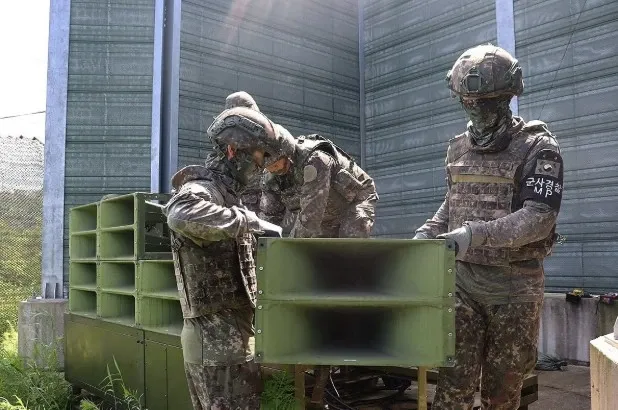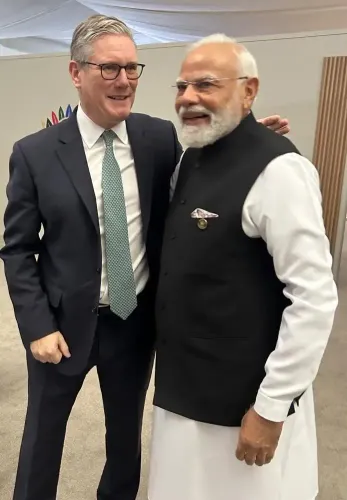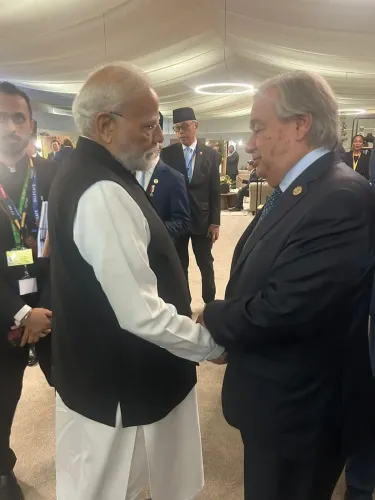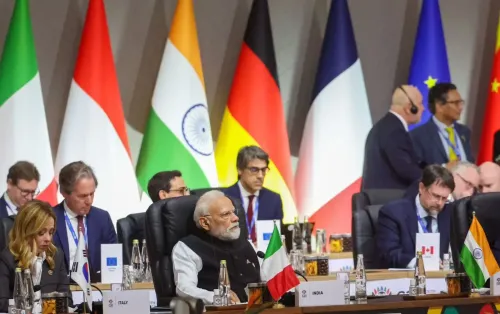Did North Korea Start Taking Down Border Loudspeakers After South Korea's Actions?

Synopsis
Key Takeaways
- North Korea has started dismantling border loudspeakers.
- South Korea removed its loudspeakers to ease tensions.
- Efforts are being made to mend inter-Korean relations.
- Concerns about outside information threaten North Korea's regime.
- Military exercises between South Korea and the US have been adjusted.
Seoul, Aug 9 (NationPress) On Saturday, North Korea initiated the process of dismantling several loudspeakers located along the border, which were previously used for noise campaigns against South Korea, as reported by the Joint Chiefs of Staff (JCS). This move comes just days after the South completed the removal of its own border loudspeakers to ease inter-Korean tensions.
This Tuesday, South Korea finished dismantling its anti-Pyongyang loudspeakers along the heavily fortified border, having halted propaganda broadcasts critical of the North on June 11. This decision aligns with President Lee Jae Myung's efforts to improve strained relations with North Korea.
The JCS noted, "Activities by the North Korean military removing loudspeakers against South Korea have been detected in parts of the front-line area since Saturday morning." They added that additional verification is needed to determine if this dismantling will occur throughout all border areas, promising to continue monitoring North Korean military movements, according to Yonhap news agency.
North Korea has historically reacted strongly against the military's loudspeaker broadcasts and leaflets distributed by activists due to concerns about outside information threatening its ruling regime.
However, during the previous conservative administration of Yoon Suk Yeol, South Korea reactivated the loudspeaker campaign for the first time in six years in June of last year, coinciding with Pyongyang launching thousands of trash-filled balloons across the border. Prior to this, Seoul had conducted the loudspeaker campaign intermittently following North Korea's fourth nuclear test in 2016.
Since taking office in June, President Lee has initiated steps to restore inter-Korean ties, which have been fractured since the North declared in late 2023 that the two Koreas are separate "hostile" nations, subsequently dismantling symbols of inter-Korean relations and unity.
In addition to ceasing military loudspeaker broadcasts, Lee urged civic groups to stop distributing anti-Pyongyang leaflets, hoping these conciliatory gestures could facilitate engagement with the North.
Recently, Seoul postponed about half of the 40 field training exercises planned as part of the annual South Korea-U.S. combined Ulchi Freedom Shield exercise, scheduled for later this month, until September, citing "multiple factors."
This decision followed North Korea's condemnation of joint drills between South Korea and the United States, accusing the South of "blindly adhering" to its alliance with Washington. In response, Unification Minister Chung Dong-young, South Korea's primary official on North Korean affairs, stated he would propose adjustments to the combined military exercise to President Lee.









